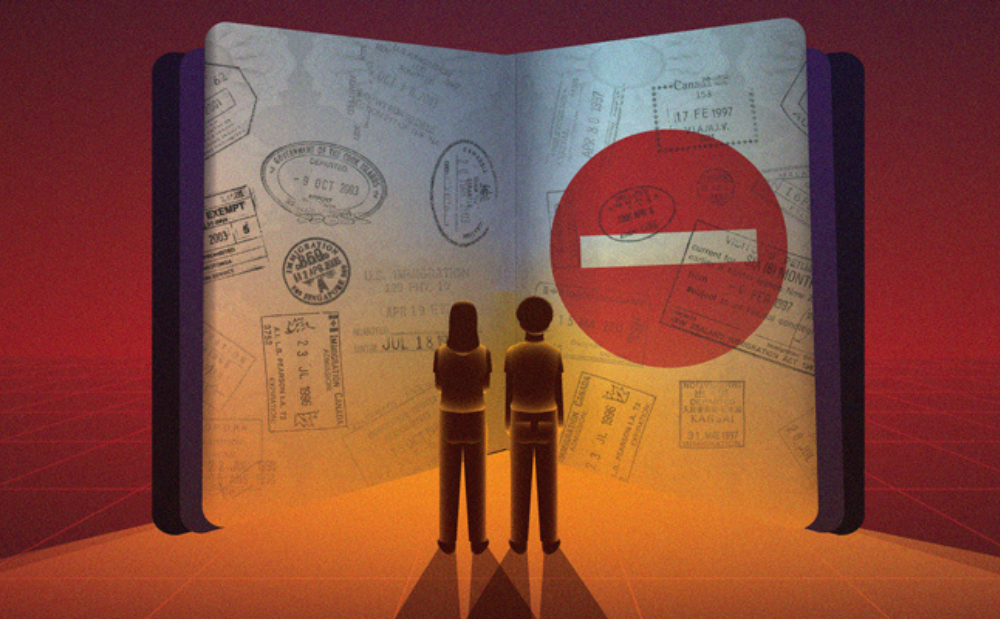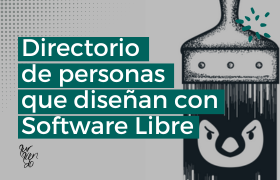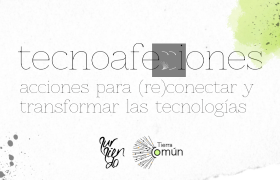Joint Statement: Passport and visa systems must not exclude members of the human rights community from cross-border convenings

We, the undersigned human rights defenders, civil society organizations, foundations, journalists, technologists, academics, and stakeholders from across sectors are taking an unequivocal stand against the dehumanizing passport and visa systems that persistently uphold inequality and deny freedom of movement to our communities, falling most starkly on people from the Global Majority. These systems undermine our shared work of defending and extending human rights across the world.
With global authoritarianism rising and civic space shrinking, denying our communities the ability to freely travel, meet, and exchange ideas in the same physical space is a tool of structural repression and a disruption to the human rights movement. Liberty of movement, both within and across borders, and the free exercise of our rights to peacefully assemble and associate affirm human dignity and sustain our work.
Conversely, the detrimental impact of excluding certain community representatives based on their nationality, or perceived racial or ethnic background or gender identity, is beyond measure. Every time someone is barred from traveling to an in-person convening, our discussions and decision-making lose vital viewpoints and are lessened as a result. Meanwhile, those individuals miss out on the ability to learn from global peers, share their energy and enthusiasm, and to leverage those learnings to advance their advocacy. This issue transcends many causes, threatening the wider advancement of human rights and democratic values.
Systematically discriminatory travel systems particularly harm the ability of our community and international policymakers to listen to and engage with civil society from conflict zones and countries where authoritarian actors are explicitly persecuting human rights defenders. These are the people who need a platform the most – yet they are being systematically denied and their voices are being further silenced.
In recent years, too many of us have experienced the barriers of a broken system that result in denied visas, arbitrary decision-making, bureaucratic delays, and resource-intensive backchanneling as we attempt to build safe, equitable, and accessible spaces for human rights defenders, and for people impacted by the issues we work on. These challenges take many shapes and forms, depending on specific contexts, but they can be felt in every region of the world, regardless of where we invite our international communities to gather. All too often they force human rights defenders to leave their fate up to the goodwill of individuals in positions of power.
This week, as we gather together in Costa Rica for RightsCon, many members of our community are unable to join us in-person as they had planned because the Costa Rican authorities did not grant visas-on-arrival to RightsCon participants who requested them through the process facilitated by Access Now with Costa Rican authorities. We have also received multiple reports from participants about racist and discriminatory interactions with migration officers both upon entering Costa Rica and at other transit points along their journey. For human rights defenders already facing so many obstacles and attacks in the course of their work, these kinds of hardships take a heavy mental toll and cannot be allowed to continue.
We call on governments that claim to support open societies and the free exchange of ideas and values to live up to these claims by acting to counter this injustice.
- For governments in countries where the digital rights community plans to gather in the year ahead, we urge you to formally commit to a clear and accessible process through which all intended participants in such civil society convenings can legally cross your borders and enjoy unobstructed access to these vital spaces. This should not be left up to “lottery” systems for consular appointments or application reviews.
- To governments able to facilitate access to other locations around the world by issuing high-access visas to their own territories, we urge you to adopt flexible and generous visa approval policies for human rights defenders, civil society actors, journalists, and others whose voices must be heard.
- To governments and international organizations hosting wider sectoral or tech-focused convenings – such asthe September 2023 Ministerial Meeting of the Global Digital Compact in New York, the October 2023 Internet Governance Forum in Japan, and the 2024 UN Summit of the Future – we urge you to redouble all forms of support for civil society’s ability to participate in such meetings. Without robust, meaningful, and truly global participation, multi-stakeholder policymaking falls at the first hurdle. Without diplomatic or consular powers, civil society suffers a structural disadvantage compared with states in hosting inclusive international events. The diplomatic channels used to streamline visa approvals for such events should benefit all stakeholders, not only a select few, and should also be considered a vehicle for enabling civil society to convene on its own terms.
We welcome all states willing to stand up as champions for civic space to partner with civil society conveners in seeking out mechanisms to more effectively support human rights defenders as they cross borders to advance their work.
We call on technology companies and investors in the sector to do their part in ensuring broad, meaningful participation from Global Majority stakeholders in the spaces they host and engage in. Employees of tech companies from Global Majority countries are also often impacted, resulting in poorer and less-informed decision-making around company policies and practice, and fewer opportunities for practitioners who face similar challenges to come together and design solutions.
These principles hold true for academic institutions, international organizations, foundations and funders, and all other stakeholders in the ongoing work to uphold human rights.
Finally, we also recognize our own role and responsibility as conveners of civil society. Combating passport discrimination and ensuring equity of access to the spaces where we gather must be a priority, not an afterthought. We must consider from the outset where to best host and how to best engage with and elevate voices from across the Global Majority, focusing in particular on the participation of people from conflict zones or countries under authoritarian rule, people who are disproportionately or exclusively targeted with discriminatory visa requirements, and people who are unjustly labeled as “terrorists” or “extremists” as a result of their human rights work. And we must remain vigilant in pursuing equitable support and rights-respecting access throughout the organizing process. We commit to strengthening our efforts to bring all of our communities to the table, and we call on conveners of civil society from across sectors to join us in doing the same.
We will deliver this statement to those from whom it demands action, including to national capitals, company board rooms, the Office of the UN Secretary General and its Envoy on Technology, the Office of the UN High Commissioner for Human Rights and special mandate holders, the UN General Assembly and Human Rights Council, and beyond. In this moment, when members of our community are once again being kept apart by unjust visa and passport systems, we are propelled to address the issue head on, and to galvanize a commitment across all stakeholders to keep our focus on minimizing these harmful experiences in all future forums.
Signatories
Organizations & Foundations
- Access Now
- Afghanistan Democracy and Development Organization
- Arabi Facts Hub
- ARIJ
- ARTICLE 19
- Avocats Sans Frontières France
- Barracón Digital
- Bits of Freedom
- Body&Data
- Center for Digital Resilience
- Center for Justice and Accountability (CJA)
- Collaboration on International ICT Policy for East and Southern Africa (CIPESA)
- Common Cause Zambia
- Conexo
- Derechos Digitales
- Digital Democracy
- Digital Freedom Fund
- Digital Rights Foundation
- Digital Rights Kashmir
- Digital Security Lab Ukraine
- Dunia Salama Foundation
- Electronic Frontier Finland
- Electronic Frontier Foundation
- The Engine Room
- Epicenter.works – for digital rights
- European Center for Not-for-Profit Law Stichting
- Femena
- Fight for the Future
- Free Expression Myanmar
- Fundación Karisma
- Global Media Registry (GMR)
- Global Witness
- Haki na Sheria
- Homo Digitalis
- Human Constanta
- Human Rights Journalists Network Nigeria
- IFEX
- Indigenous Friends Association
- InternetBolivia.org Foundation
- Internet Sans Frontières
- INSM for Digital Rights in Iraq
- Kandoo
- KICTANet
- KRYSS Network, Malaysia
- LaLibre.net Tecnologías Comunitarias
- Legal Media Center
- Measurement Lab
- Media Defence
- MENA Rights Group
- MIRR Alliance
- Mozilla Foundation
- The National Forum for Human Rights
- The Nubian Rights Forum
- O Foundation
- Paradigm Initiative
- Point of View
- ProboxVE
- Red Line for Gulf
- RedesAyuda
- SMEX
- Social Media Observatory Network (SMON)
- Superbloom Design
- Sursiendo
- The Syria Campaign
- Tech for Good Asia
- Tor Project
- Whistleblowing International Network (WIN)
- WITNESS
- Yes We Can Organization
- YODET
- 7amleh – The Arab Center for the Advancement of Social Media
Individuals
- Alex Warofka
- Ameya Nagarajan, Global Voices Advox
- Andrej Venta
- Belen Pardo
- Carrie DeCell, Knight First Amendment Institute
- Catherine Frias-Johnson
- Cecilia Maundu, IAWRT
- César Manso-Sayao, Digital Freedom Fund
- Cindy Cohn, Electronic Frontier Foundation
- Cristian Ugalde
- Daphne Ugarte
- David Greene, EFF
- David Solís Aguilar
- Domingo Flores, Riesgos Club
- Elina Nikulainen
- Emre Kizilkaya, Journo.com.tr
- Frederike Kaltheuner
- Georgia Popplewell
- Halefom Abraha
- Heather Moore, Anti Recidivism Coalition
- Katie Hoeberling
- Kirill Koroteev, Agora
- Jan Kooy, Human Rights Watch
- Jazz Hernandez
- Jiye Seong-Yu, Asian Voices Europe
- Juan delGado, Qisetna
- Julian Nelums, Amazon
- Lena Romanenko
- Mai El-Sadany
- Moldir Utegenova
- Nima Fatemi
- Nompilo Simanje, International Press Institute
- Petra Molnar, Refugee Law Lab
- Ramy Yaacoub, OSF
- Risper Onyango, Lawyers Hub
- Saira Ortega
- Tresor Kalonji, YALI RLC East Africa – Alumni chapter of the DRC
- Vesa Linja-aho
Note from Access Now: As the convener of RightsCon Costa Rica, where a large number of participants were impacted by a failed visa-on-arrival process, we are taking a moment for serious reflection around how we could have better protected RightsCon community members from the harms they have experienced, and how we can more effectively mitigate the impacts of discriminatory passport and visa systems for people attending our events going forward. We acknowledge that the people unable to obtain access to Costa Rica and our in-person convening space through the channel to which we pointed them are almost exclusively from the Global Majority, coming from all across Africa, Latin America and the Caribbean, MENA, Asia-Pacific, Eastern Europe and Central Asia. While we attempted to facilitate a streamlined process for people who would otherwise have faced burdensome or insurmountable requirements for documentation while applying for a Costa Rican visa, the end result put many people on a course that provided few alternatives when, in the final days leading up to the event, the Costa Rican government failed to uphold its previous commitments regarding visas-on-arrival. This process has made clear the extent to which we cannot depend on government decision makers and bureaucracies to function in ways that serve our community’s needs and whose actions have the capacity to inflict direct harm on the people we aim to convene and uplift. We are deeply grateful to the many community members who have so generously shared their experiences, advice on strategies for next steps, and insights into the ways in which we can better support those most directly impacted, and we are taking steps to put that guidance into action – both for the duration of RightsCon Costa Rica and as we look toward RightsCon 2024.
El presente pronunciamiento fue publicado originalmente en Access Now. Puedes unirte con tu firma en este enlace.




